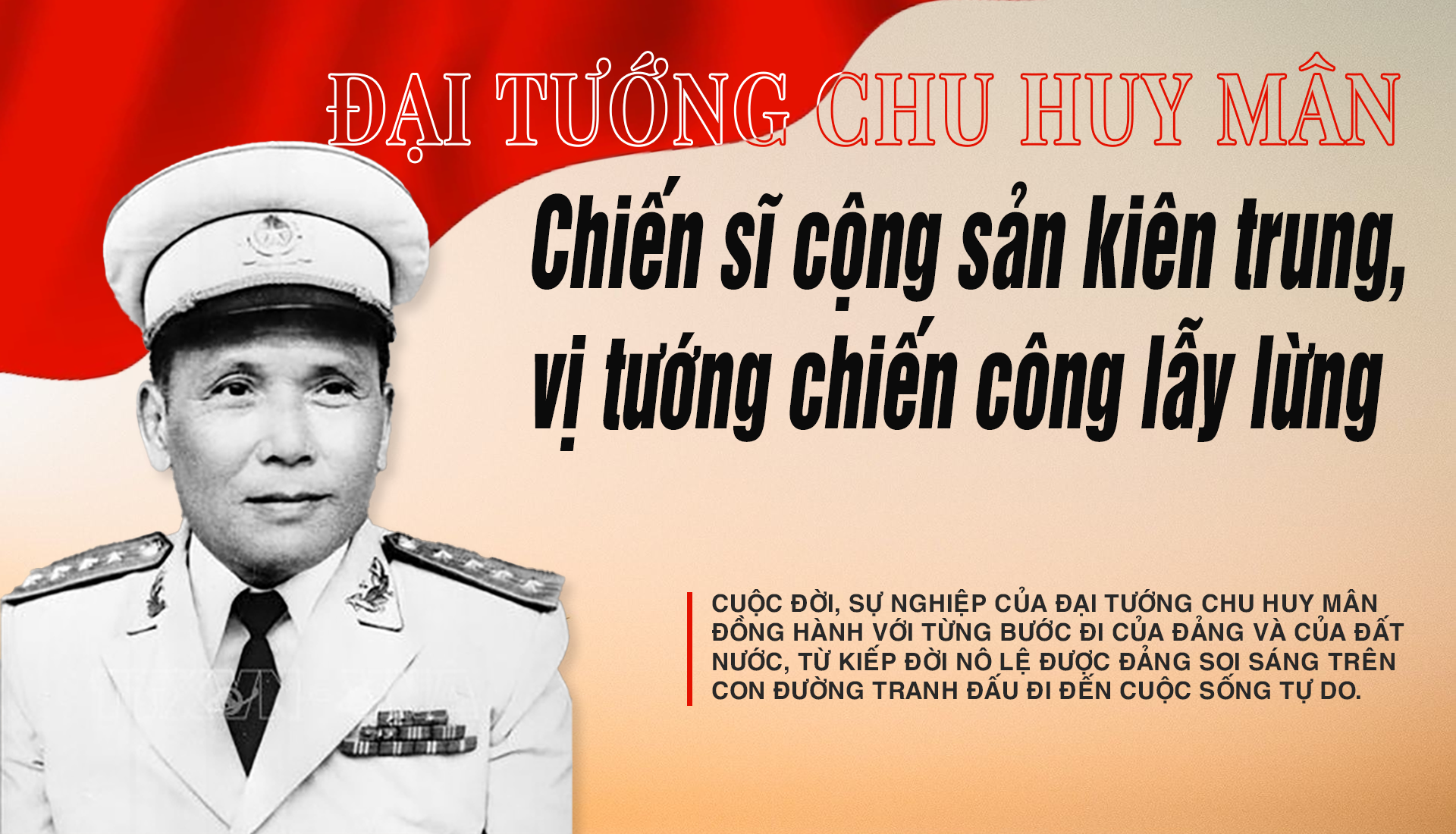

Comrade Chu Huy Man, whose birth name was Chu Van Dieu, was born on March 17, 1913, in Yen Luu commune, Yen Truong commune, Hung Nguyen district (now Hung Hoa commune, Vinh city, Nghe An province). Chu Van Dieu was the youngest child in a family of 8 children. His father was Chu Van Quy, who used to work as a rickshaw puller and passed away when his youngest son was only 14 months old. His mother was Tran Thi Xan, a hard-working woman who loved her husband and children and died in the famine of At Dau year (1945).
Born in a rural area considered a land of outstanding people, rich in traditions of culture, patriotism and revolutionary struggle, with his family providing him with the conditions to study, Chu Van Dieu soon absorbed the traditions of his homeland and became enlightened about the revolution.
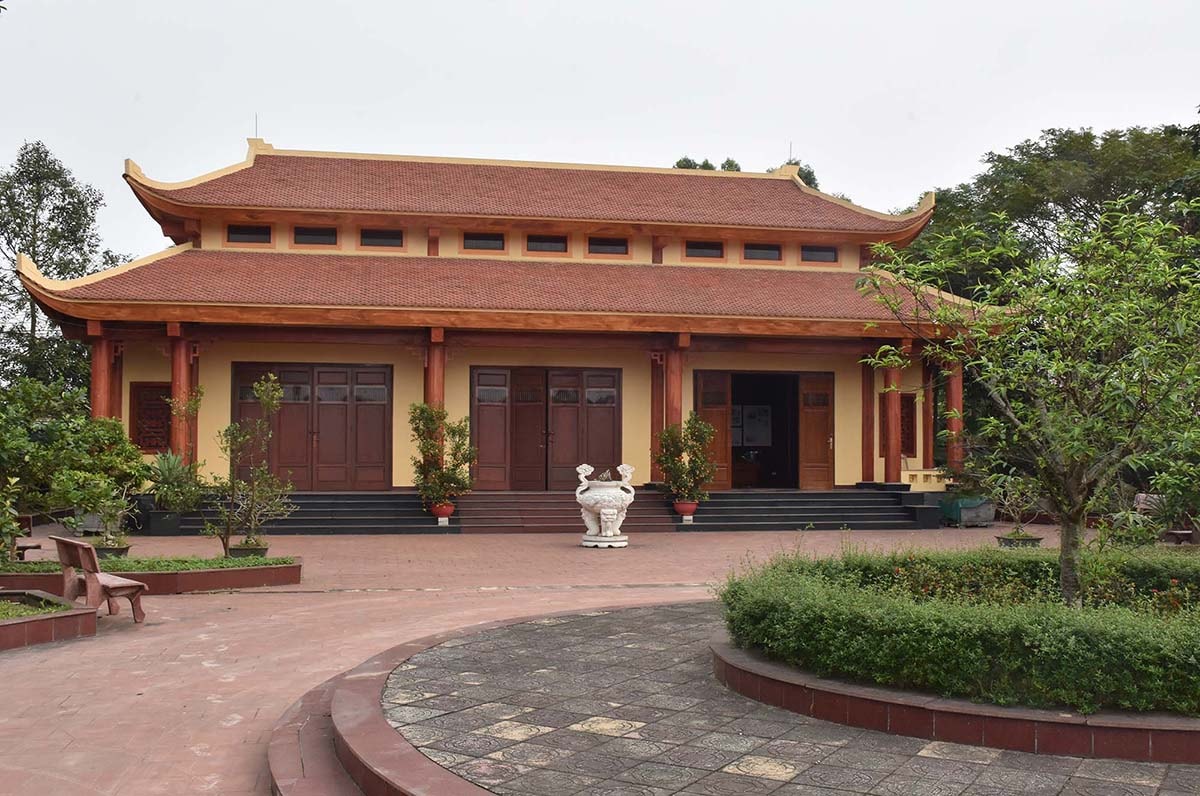
In 1929, Chu Van Dieu participated in a large rally of the commune; in the Revolutionary High Tide of 1930-1931, he was appointed as Deputy Captain of the Red Self-Defense Team; in November 1930, he was admitted to the Communist Party of Vietnam. In June 1931, Chu Van Dieu was captured by the enemy. After many days of brutal torture but could not overcome his will to "submit", the enemy was forced to release him.
In 1933, he was appointed as Secretary of the Yen Luu Commune Party Cell; in May 1935, he changed his name to Chu Huy Man, meaning “bright pearl”; in 1936, he was Secretary of the Hung Nguyen District Party Committee. From 1937 to 1940, he was imprisoned many times by the French colonialists in Vinh Prison, and in 1940 was imprisoned in Dac Glei and then Dac To, Kon Tum.
In 1943, comrade Chu Huy Man escaped from prison and continued his revolutionary activities. In September 1944, he joined the Viet Minh Provincial Committee and the Quang Nam Provincial Party Committee. In early August 1945, he joined the Standing Committee of the Quang Nam Provincial Riot Committee. After the success of the August 1945 Revolution, he was elected Deputy Secretary of the Quang Nam Provincial Party Committee. In September 1945, he was assigned to be the Political Commissar of the Branch (Provincial Party Committee).
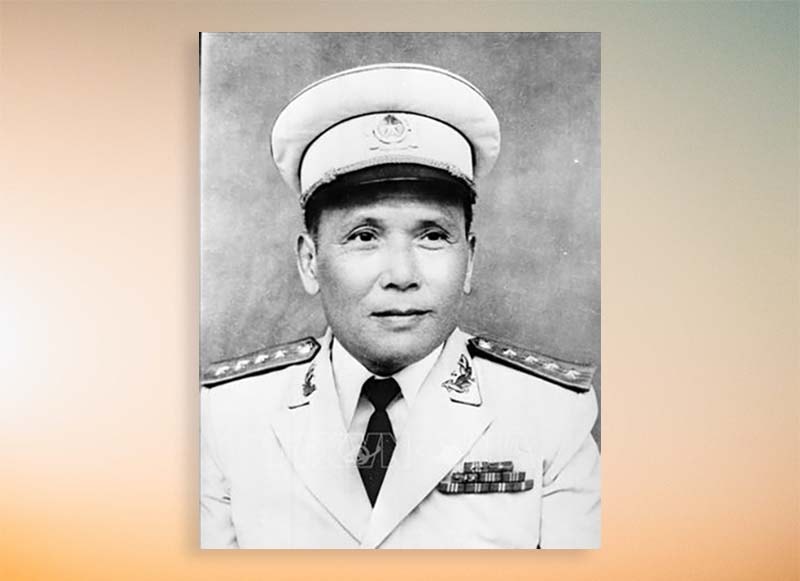
From the end of 1946 to May 1951, he was assigned to hold many important positions in the Army: Head of the Party Inspection Committee; Military Region Committee member of the Viet Bac Zone; Regiment Commander and Secretary of the Regiment Committee of Regiment 72, Regiment 74 Cao Bang and Regiment 174 Cao - Bac - Lang (1947 - 1949); directly commanded Regiment 72 to participate in the Viet Bac Campaign - Autumn - Winter 1947; commanded Regiment 74 to help the Chinese revolution fight against the Chiang army (1948 - 1949); commanded Regiment 174 to participate in the key battle of Dong Khe in the victorious 1950 Border Campaign; Deputy Political Commissar, Political Commissar of Division 316, Secretary of the Party Committee of Division 316 (May 1951), together with officers and soldiers of the Division participated in many campaigns, from Bac Giang to Hoa Binh, Northwest, Upper Laos and the Dien Bien Phu Campaign.
From 1954 to 1961, comrade Chu Huy Man was assigned to the following positions: Head of the Delegation, Secretary of the Party Committee of the Vietnamese Military Expert Delegation in Laos; Political Commissar, Secretary of the Party Committee of Military Region 4 (1957); Secretary of the Northwest Region Party Committee, concurrently Political Commissar, Secretary of the Party Committee of the Northwest Military Region (1958); Commander, Political Commissar, Secretary of the Party Committee of Military Region 4 (1961).
In 1962, he was sent to study at the Frunde Military Academy (Soviet Union). In September 1963, he was sent by the Party Central Committee to the battlefield of Military Region 5 and held the following positions: Head of the Inspection Delegation of the Central Military Party Committee to study the work of Military Region 5; Deputy Secretary of the Regional Party Committee, then Secretary of the Military Region Party Committee, Political Commissar of Military Region 5.
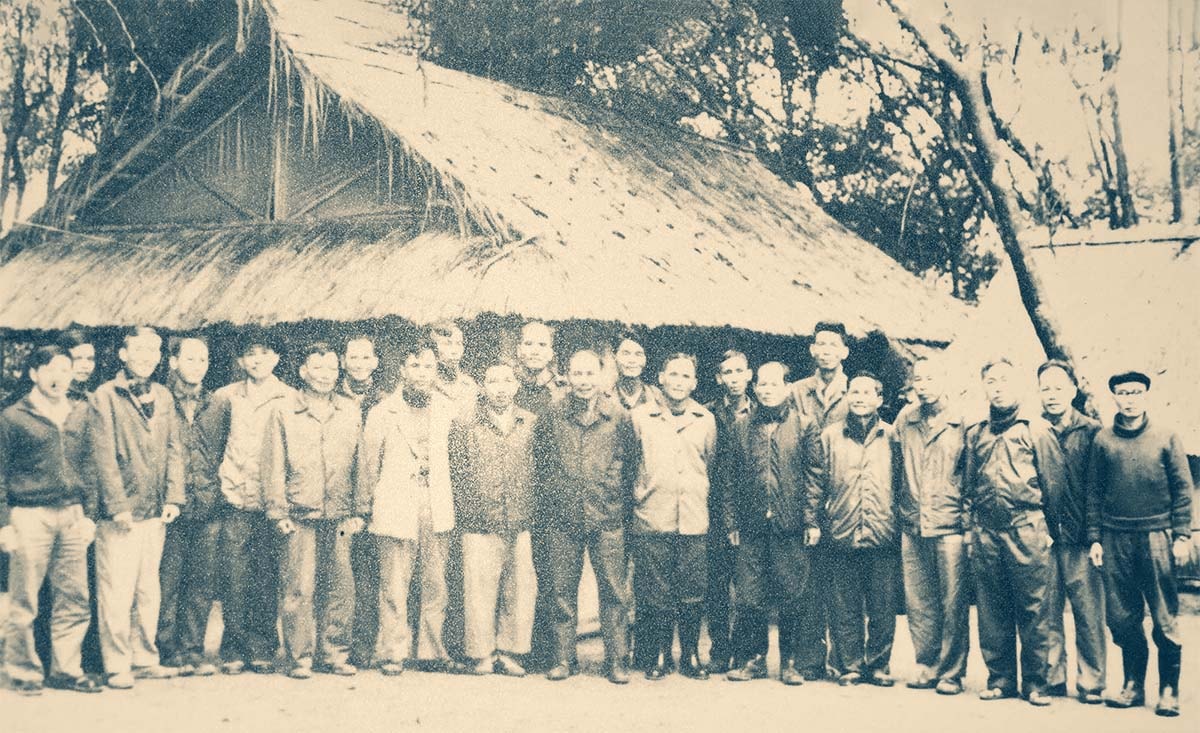
In August 1965, he assumed the position of Commander, Political Commissar, and Party Secretary of the B3 Front - Central Highlands. In 1967, he assumed the position of Deputy Secretary of the Regional Party Committee, Commander, Deputy Political Commissar, and Deputy Secretary of the Military Region Party Committee of Zone 5; at the end of 1975, he was Commander, Political Commissar, and Secretary of the Military Region Party Committee of Zone 5.
After April 30, 1975, the liberation of the South and reunification of the country, he continued to hold the position of Commander, Party Secretary, and Political Commissar of Military Region 5.
From March 1977 to December 1986, he held the position of Director of the General Political Department of the Vietnam People's Army, Deputy Secretary of the Central Military Party Committee, Head of the Inspection Committee of the Central Military Party Committee, and Vice Chairman of the State Council in July 1981.
In 1958, he was awarded the rank of Major General; promoted from Major General to Senior Lieutenant General in 1974; and General in 1980.
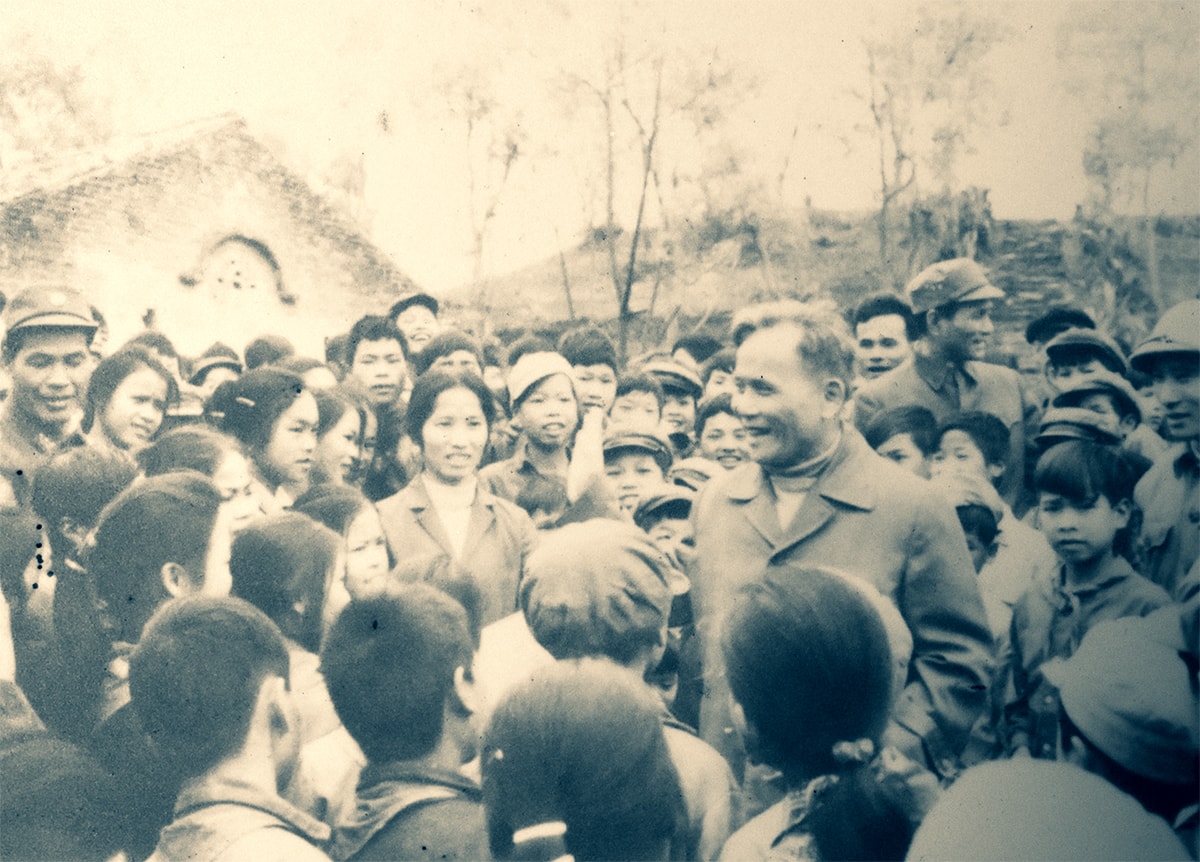
At the 3rd National Party Congress (1960), he was elected as an official member of the Party Central Committee. At the 4th National Party Congress (1976) and the 5th National Party Congress (1982), he was re-elected to the Party Central Committee and elected by the Central Committee to the Politburo. He was a National Assembly delegate of the 2nd, 6th and 7th terms.
In December 1986, he retired.
Comrade Chu Huy Man passed away on July 1, 2006, at the age of 93.
With his revolutionary achievements and contributions, comrade Chu Huy Man was awarded the Gold Star Order, Ho Chi Minh Order, 70-year Party membership badge and many other noble orders, medals and awards from our Party, State and friendly countries...

From the very first years of joining the revolution, comrade Chu Huy Man was attached to the armed forces. His military talent was associated with many resounding victories of our army and people in the two resistance wars against the French colonialists and the invading American imperialists.
During the Nghe-Tinh Soviet movement of 1930-1931, comrade Chu Huy Man led the Red Self-Defense Force to step up the struggle to protect the revolutionary government. As Secretary of the Yen Luu Commune Party Cell, he directly led the recovery after the "white terror" of the French colonialists (1933-1935) and actively participated in activities in the movement to fight for people's livelihood and democracy in the period of 1936-1939.
During the period 1937 - 1942, comrade Chu Huy Man was repeatedly arrested, imprisoned, beaten, brutally tortured by the enemy and sent to many prisons, such as: Vinh (Nghe Tinh), Dak Glei, Dac To (Kon Tum). In prison, he always maintained the integrity of a staunch communist.
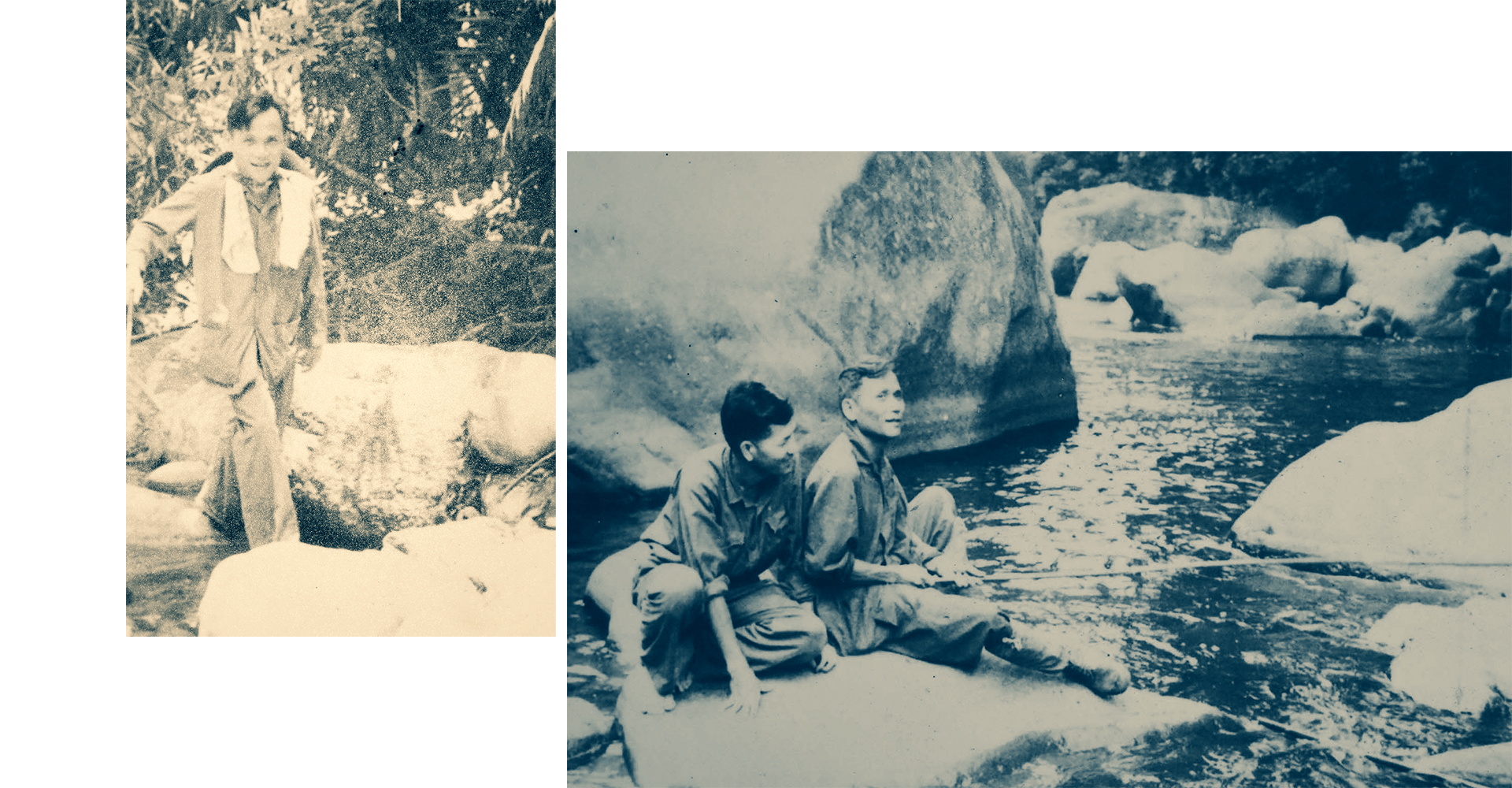
In August 1945, he directly commanded the uprising to capture Quang Nam citadel, and participated in leading the General Uprising in Quang Nam province to victory. At the end of 1945, he was assigned by the Central Committee to Hue to hold the position of Chairman of the Military Committee of Zone C (including 4 provinces of North Central Vietnam). After that, he successively held many important positions of the Army, the Party and the State on the hottest and fiercest fronts both domestically and in neighboring countries Laos and China.
During the Viet Bac Campaign - Autumn Winter 1947, as the Commander of Regiment 72, he organized many victorious battles against the enemy, contributing to forcing the French army to withdraw from Bac Kan. In 1948, he was assigned by his superiors to Cao Bang to hold the position of Commander of Regiment 74 and Secretary of the Regiment Party Committee.
At the end of August 1948, implementing the Directive of the General Command, comrade Chu Huy Man commanded the 74th Regiment to help the Chinese revolution fight against the Chiang army, expand the base in the Ta Giang region, carry out the Thap Van Dai Son Campaign and won, which was highly appreciated by the Party, Government and people of China. In 1950, he commanded the 174th Regiment to participate in the key battle of Dong Khe and won the Border Campaign.
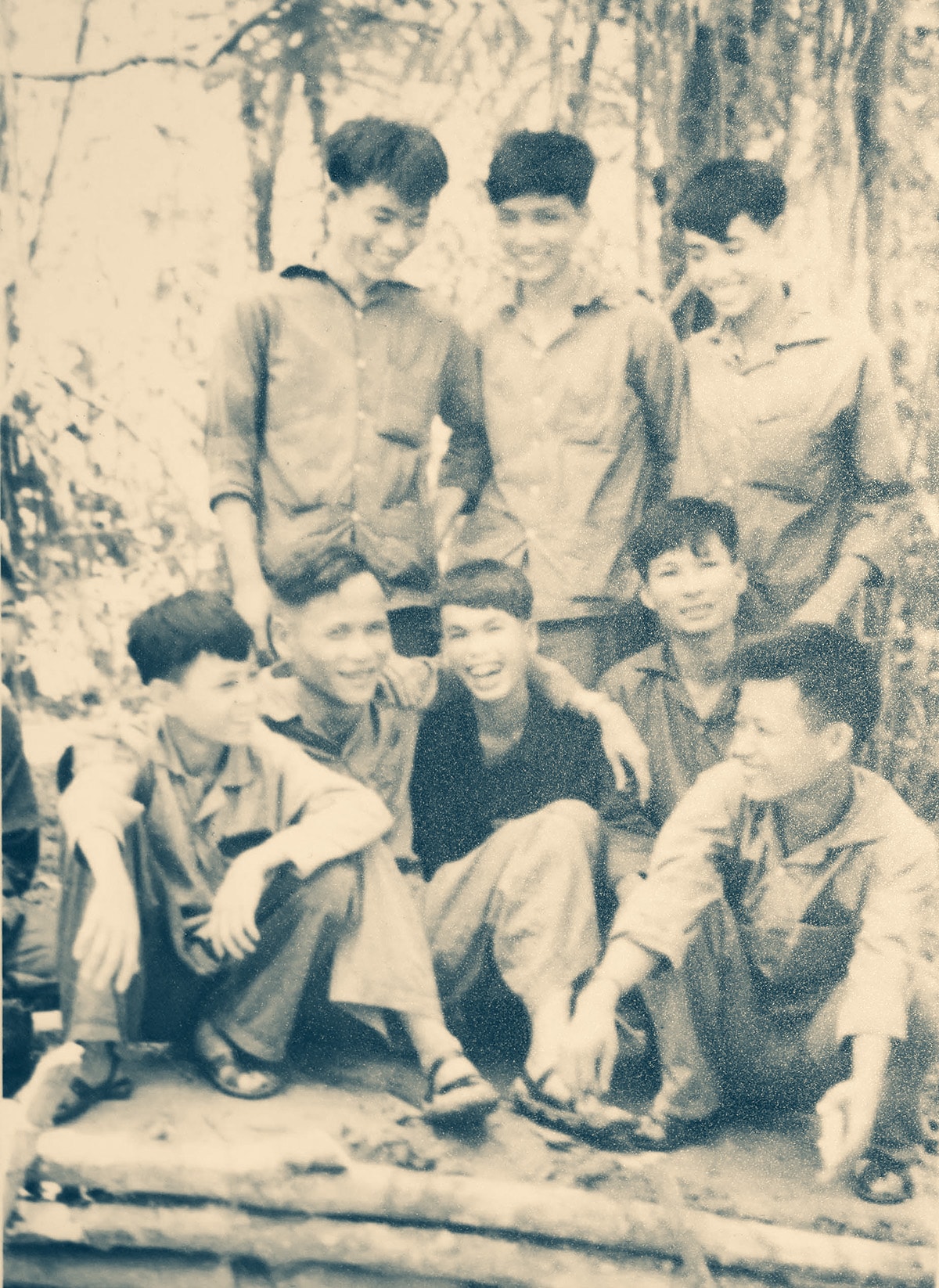
On May 1, 1951, the 316th Division was established, comrade Chu Huy Man was assigned to hold the positions of Deputy Political Commissar, Political Commissar, and Party Secretary of the Division. He and the collective leadership and command of the Division participated in many campaigns, from Bac Giang to Hoa Binh, Northwest, Upper Laos, winning many battles, typically the attack on Hill A1, C1, C2 strongholds in the Dien Bien Phu Campaign.
During the resistance war against the US, comrade Chu Huy Man, together with the Regional Party Committee, the Military Region Party Committee and the Military Region 5 Command, led our army and people to successively defeat the enemy's strategies and tactics. Region 5 was the locality that "led the way in destroying the US" with resounding victories, such as Nui Thanh, Van Tuong, Plei Me - Ia Drang.
Zone 5 was also the battlefield where he participated in directing the successful construction of the "American-killing belt" - a unique and creative form of fighting in the Vietnamese people's war; directing and organizing the successful implementation of the combined offensive campaigns of Ba Gia (1965), Sa Thay (1966), Tet Mau Than (1968), Bac Binh Dinh (1972), Hue and Da Nang Campaigns (1975)..., contributing with the army and people of the whole country to "Fight to drive out the Americans, fight to overthrow the puppets", completely liberating the South and unifying the country.
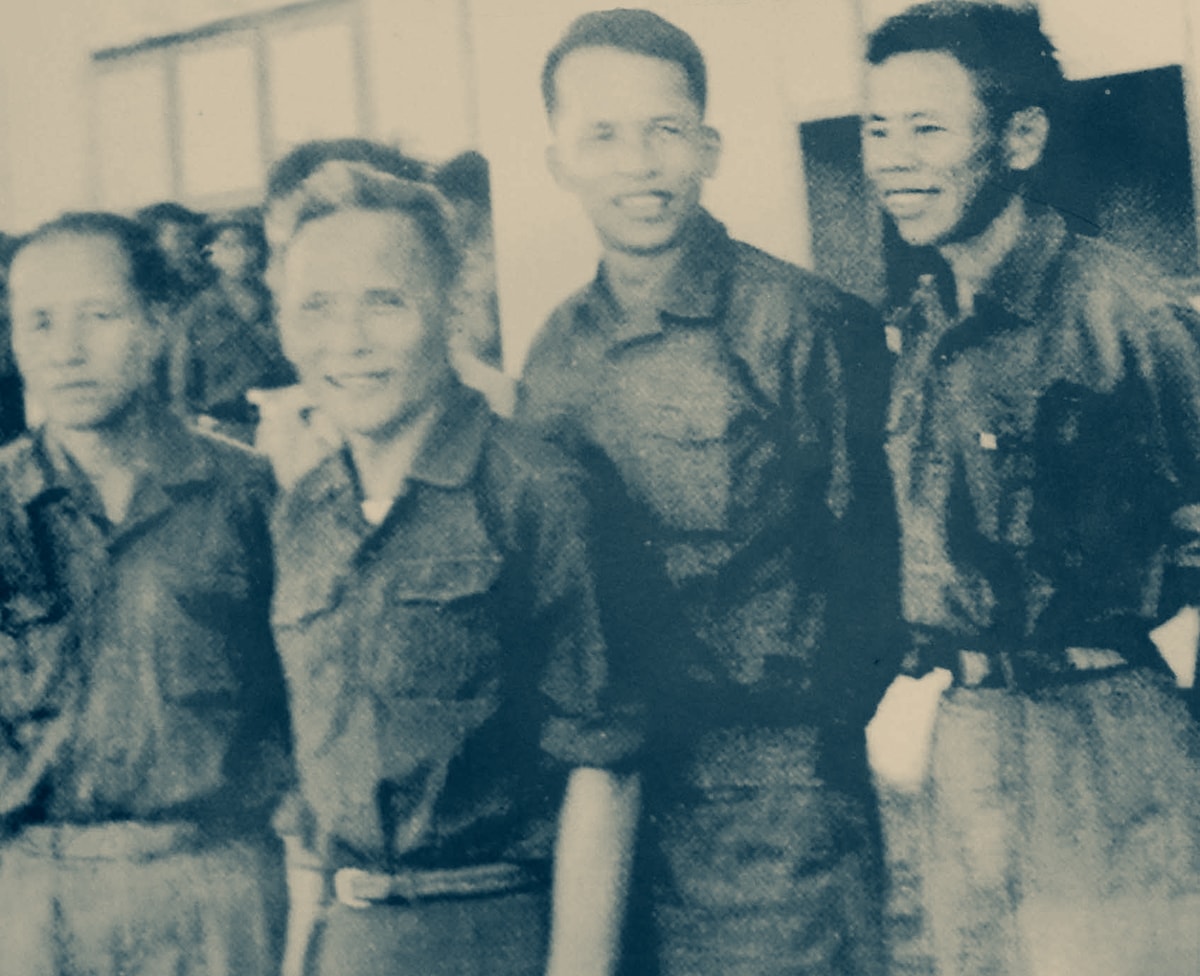
The country was unified, the country was reunited, comrade Chu Huy Man continued to participate in military work. He, together with the Central Military Party Committee and the Ministry of National Defense, proposed to the Party and State leaders many correct policies and decisions, and at the same time, directly led the successful implementation of military and defense tasks, building and protecting the socialist Fatherland, taking care of building the army in the direction of "revolution, discipline and gradual modernization".
Comrade Chu Huy Man has demonstrated his talent, creative spirit and determination of a comprehensive military-political leader, completing all the difficult and complicated international tasks entrusted to him by the Party and President Ho Chi Minh. That success demonstrates the pure international spirit of Uncle Ho's soldiers, the noble qualities of the excellent military-political commander of the Vietnam People's Army - Comrade Hai Manh - Chu Huy Man.
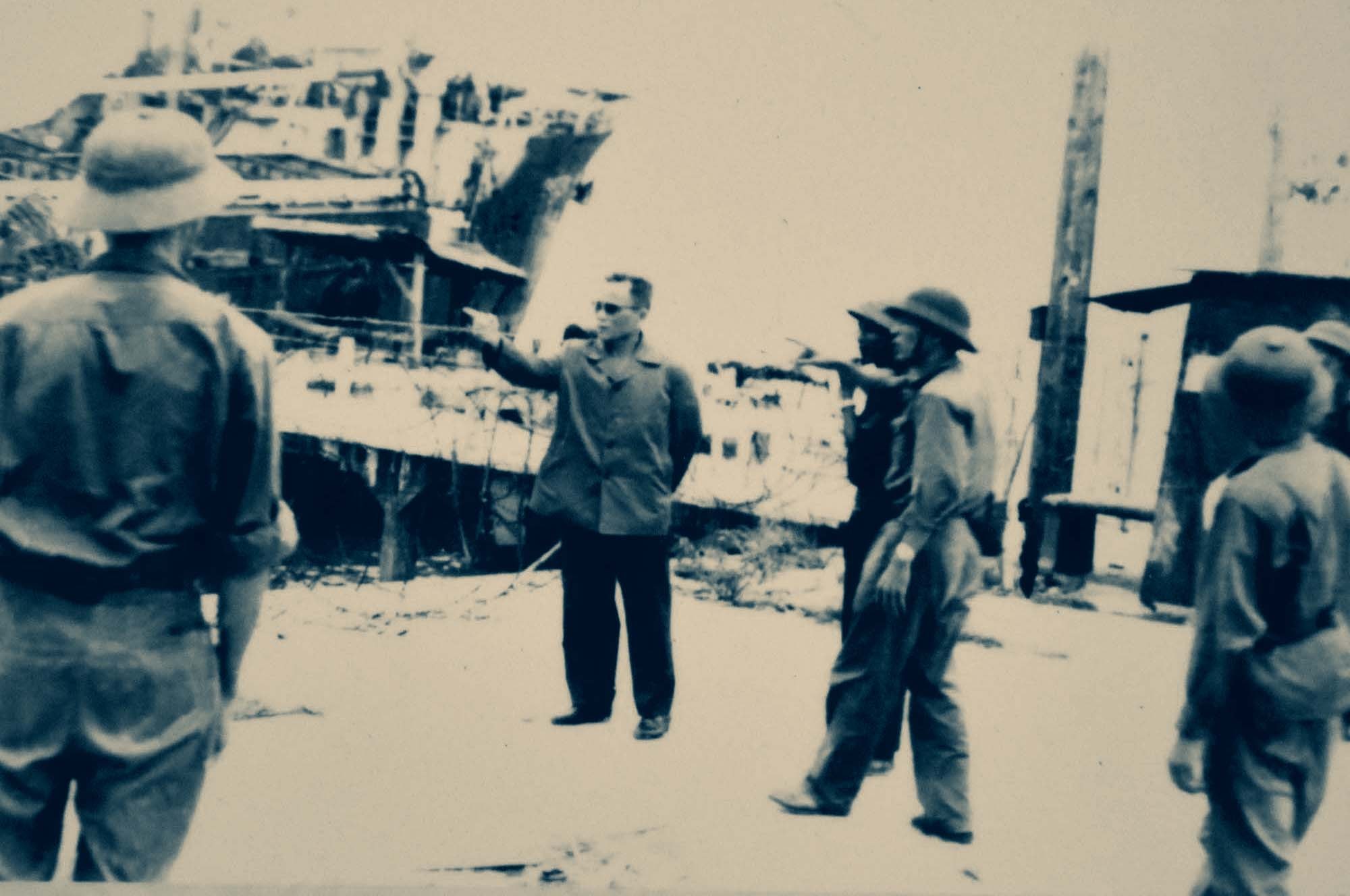

As a leader of Party work in the army, Comrade Chu Huy Man paid special attention to and attached importance to Party work, political work, building political and spiritual factors, and upholding the principle of absolute, direct and comprehensive Party leadership of the army. He proposed many important measures to improve the effectiveness of all aspects of Party work and political work in the army; focusing on building and consolidating the army's cadre team.
The qualities of a talented and astute politician were affirmed in his important instructions in ideological and political work, which encouraged and promoted the spirit, strength and determination of cadres and soldiers in the fierce and difficult stages of the battle. According to him, building the ideology and mettle of each cadre and soldier before the battle is the decisive factor in success or failure, and ideological work must become the top priority.
In each working position, from the Regiment level to the position of Politburo member, Vice Chairman of the State Council, Deputy Secretary of the Central Military Party Committee, Director of the General Department of Politics of the Vietnam People's Army, comrade Chu Huy Man regularly took care of building and consolidating the combat strength of the armed forces.
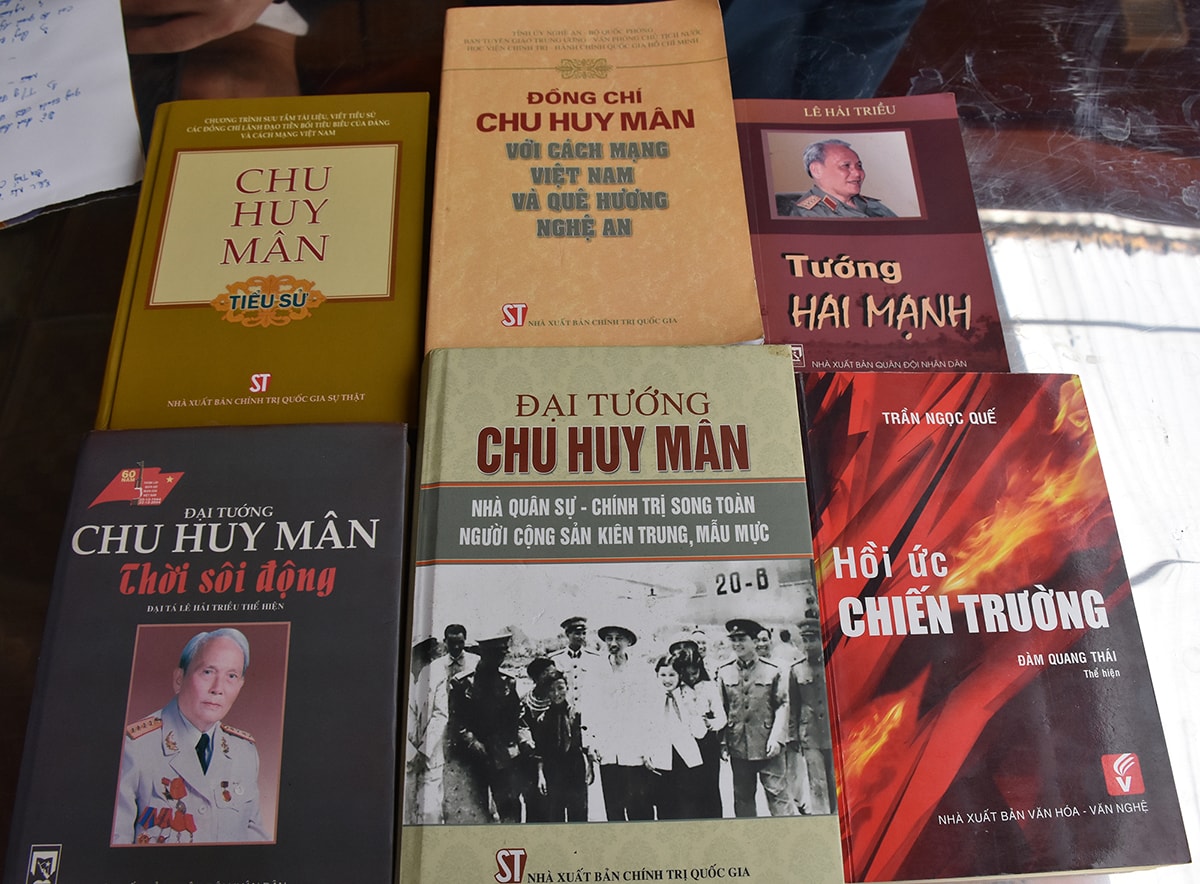
In particular, comrade Chu Huy Man paid great attention to consolidating and improving the fighting capacity of Party organizations in the armed forces; building a clean and strong Army Party organization in terms of politics, ideology and organization; building political agencies and cadres, especially political commissars and political officers at all levels.
Comrade Chu Huy Man's contributions reflect the strategic thinking of a profound and practical politician. Those contributions have directly contributed to building the Vietnam People's Army to become increasingly mature and strong, especially politically, creating a solid foundation for the army to continue to develop, well meeting the requirements of building and protecting the Fatherland in the new situation.

Since his years of activities in his homeland and the time he was imprisoned by the French colonialists, comrade Chu Huy Man has always been a shining symbol of the spirit of steel, the belief in the inevitable victory of the revolutionary cause led by the Party, and has become a typical example of the communists' indomitable fighting will against the brutal enemy.
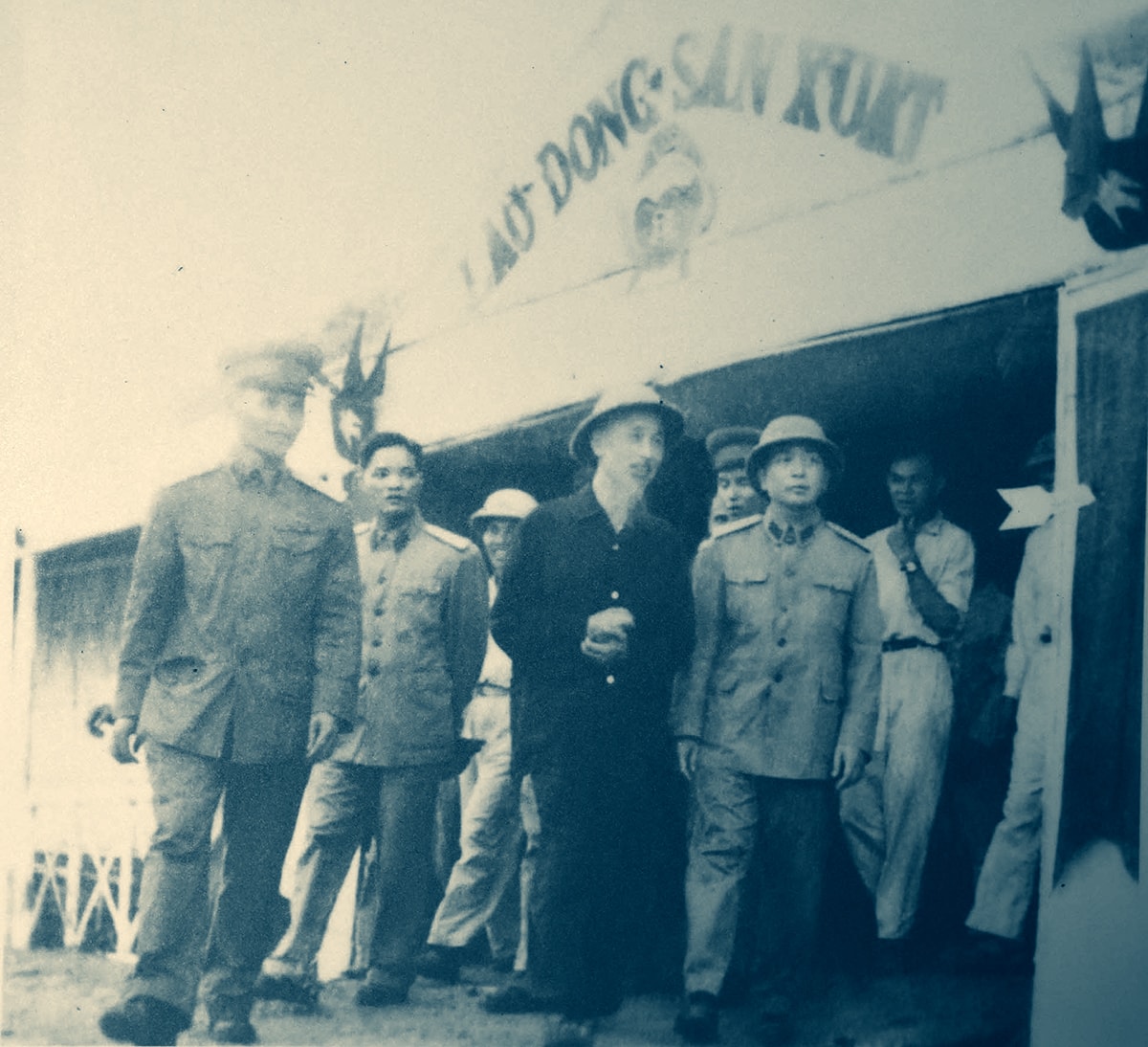
As an excellent student of President Ho Chi Minh, throughout the two long and arduous resistance wars of the nation, in the cause of building and defending the Fatherland, Comrade Chu Huy Man always put the interests of the Fatherland and the Party above personal interests. He devoted his whole life to the revolutionary cause, was truly "diligent, thrifty, honest, fair-minded and selfless", never retreated in the face of difficulties and challenges, was always present in the most dangerous and difficult places, stood shoulder to shoulder with comrades and teammates, closely followed the grassroots, wholeheartedly served the Fatherland and the People.
During the revolutionary activities of comrade Chu Huy Man from the beginning until holding high-ranking leadership positions of the Party and the Army, he was always trusted by the Party, the State and President Ho Chi Minh to assign important tasks and responsibilities in difficult times. With his courage and talent, he was always proactive, deeply penetrated into the lives of compatriots and soldiers, attached to and struggled in revolutionary movements and arduous battlefields, wholeheartedly devoted himself, researched and created to lead and direct the revolution to success.
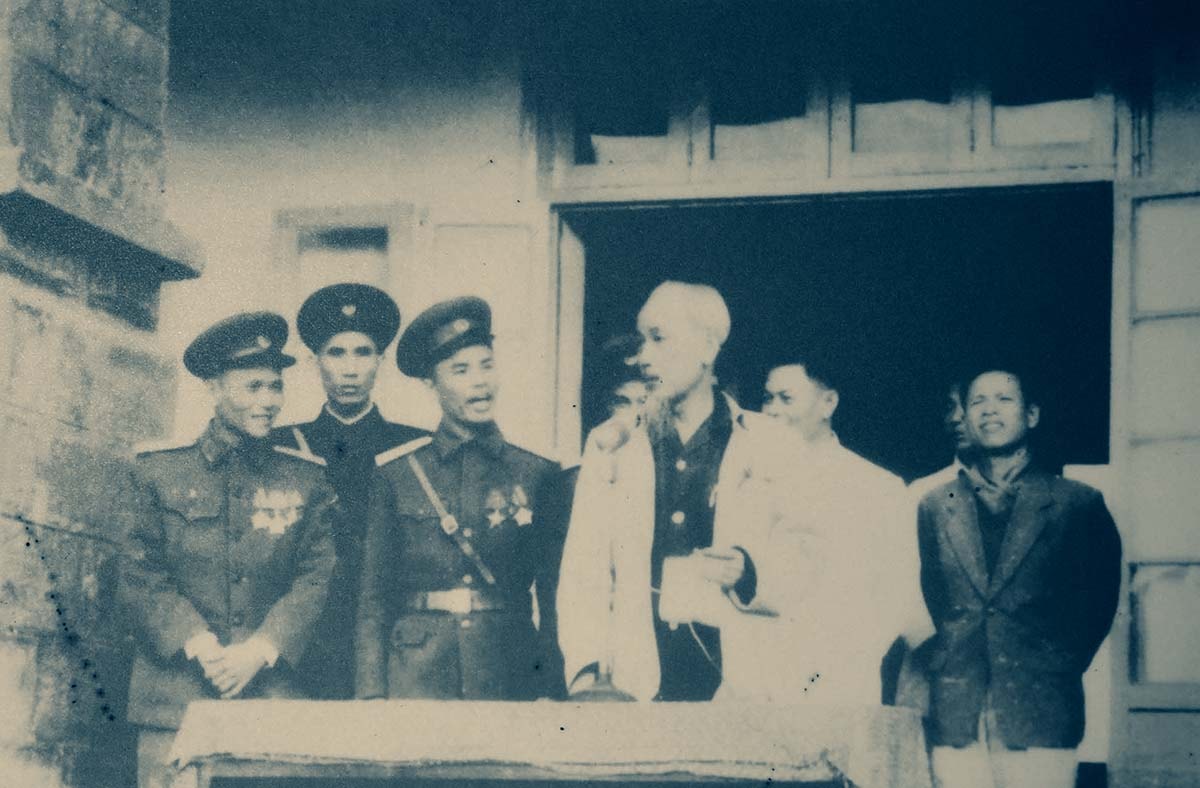
During his lifetime, he once told his comrades: "The most glorious thing in life is to dedicate, to dedicate all of oneself to the Fatherland and the people; I joined the Party completely voluntarily, sacrificing and fighting all my life for the Fatherland and the people."
In December 1986, after successfully completing the tasks assigned by the Party and the State, returning to ordinary life, comrade Chu Huy Man always upheld the qualities and will of a communist, a general of the people, had many concerns, and continued to make important contributions to the cause of Party and Army building./.
